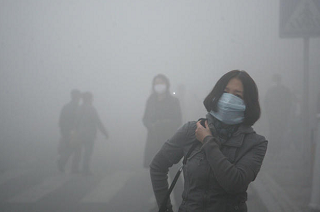Utilities Should Examine the Social Benefits of Energy Storage

But to my horror, they don’t put a value on the social good that storage brings to the table. Storage means more renewable energy and less fossil fuels, and, therefore, a cleaner environment, less climate change, less ocean acidification, less loss of biodiversity, and fewer cases of cancer; the list goes on from there.
Here’s the sad part: when I asked a speaker about this, he said, “Well, all these are hard to quantify in dollars.” I had two responses:
1) That’s not completely true. There are numerous studies–more every year—that pull apart, for example, the increase in healthcare costs associated with coal-fired power plants. An example is the one Harvard University published in 2011, in which they asserted that the true costs of using coal to generate electricity in America are between $330 and $500 billion dollars annually.
2) The fact that it’s not pinned down to the penny isn’t an excuse to omit it altogether. Wouldn’t you rather be guilty of some level of inaccuracy than developing a model that you know for a fact is off by a light-year? It’s rather like preferring to wear a wristwatch that doesn’t run at all over one that runs slow or fast, because the stopped watch is precisely right twice a day; sure, it doesn’t tell time, but that’s just a detail.
It’s disheartening that I need to explain this to a roomful of energy experts; I would have thought it obvious. It’s moments like this that make you feel that humankind really doesn’t have a prayer of getting through this bump in its evolution. Speaking of which, those who wish to explore this sobering concept will enjoy the new book by the brilliant scientist Elizabeth Kolbert, “The Sixth Extinction: An Unnatural History.” Her position is that, just as an asteroid caused a mass extinction 65 million years ago, human beings are causing one today. In other words, we’re the modern-day asteroid.
Yikes.

There is a theory that roughly goes like this. One reason we haven’t seen any travelers from other planets may be that any civilization that develops the technology to travel to another planet has also developed the technology to destroy themselves and therefore never gets to make the trip. The thought was that we would destroy ourselves with nuclear weapons. Perhaps we will just pollute ourselves out of existence instead.